#canadian segregation
Text
Black History Month Display!

The poster looks like this close up:
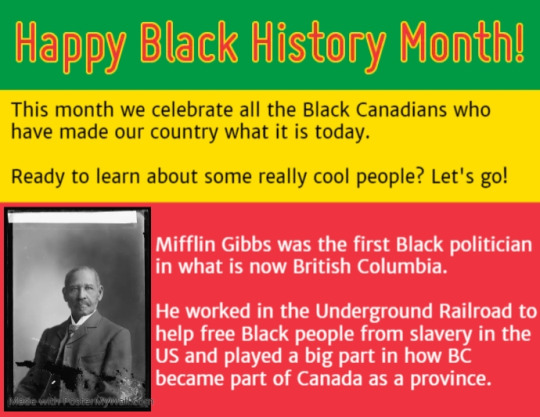


#black history#black history month#black history matter#representation matters#donovan bailey#libraryland#librarylife#school librarian#school libraries#libraries#the real life of me#canada#elementary school#book display#viola desmond#carrie best#segregation#canadian history#mifflin gibbs
25 notes
·
View notes
Text
His solution to the Aboriginal question was to introduce to Queensland a version of the reserves for native peoples of the United States and Canada.
To keep our aboriginals away from contact with the whites, out that section with which they unfortunately mingle, is the most beneficial act of friendship within our power to bestow. It is also the only possible method of saving any part of the race from extinction.
"Killing for Country: A Family History" - David Marr
#book quotes#killing for country#david marr#nonfiction#indigenous australians#aboriginal australian#solution#problem solving#archibald meston#qld#queensland#australia#reserves#native american#native canadian#united states#canada#segregation#protection#friendship
2 notes
·
View notes
Text
Viola Desmond
A Canadian activist and businesswoman, Viola Desmond (1914-1965) helped start the modern Canadian civil rights movement.
Born to a Black father and White mothers in Halifax, Nova Scotia, Desmond became a beautician to address the lack of hair-care and skin-care products for Black women. She was not able to train in Halifax beautician schools, and left to train in three different cities (including one of Madam C. J. Walker's schools in New York). She returned to Halifax, where she opened a hair salon and her own beauty school for Black women, which explicitly gave admission to those who were denied entry to Whites-only training schools.
On November 8, 1946, Viola attended a movie in a segregated theatre. Unaware of this police and near-sighted, Desmond was sold a balcony ticket but sat in the floor section to see better. She was asked to move, refused, and she asked to be sold a floor ticket to be fair (they cost slightly more). Desmond was unaware of the segregation policy, as it was not standard throughout Nova Scotia.
Desmond was forcefully removed from the theatre, injuring her hip, and spent 12 hours in jail. The difference in price between the two tickets meant she had evaded a tax of a single cent (the balcony tax was 2 cents, the floor tax was 3 cents). Desmond, supported by the Nova Scotia Association for the Advancement of Coloured People (NSAACP), filed a lawsuit.
The lawsuit was dismissed. The Justice, when doing said, said that she was in the right, but the case had been brought as regarding to tax evasion, not civil rights.
The case was highly publicized throughout Canada, and was a centerpoint around Canadian civil rights activism. Desmond was granted a posthumous pardon (this first in Canadian history) in 2010 and appeared on a Canadian banknote.
#history#canadian history#black history#african american history#viola desmond#nova scotia#tw racism#tw segregation
42 notes
·
View notes
Text
Is your pro-Palestine activism hurting innocent people? Here's how to avoid that.
Note: If you prefer plain text, you can read the plain text version here.
Over the last few days, I’ve had conversations with several Jewish people who told me how hurt and scared they are right now.
To my great regret, some of that pain came from a poorly-thought-out post of mine, which – while not ill-intentioned – WAS hurtful.
And a lot of it came from cruelty they’d experienced at the hands of people who claim to be advocating for Palestine, but are using the very real plight of innocent Palestinians to harm equally innocent Jewish people.
Y’all, we need to do better. (Yes, “we” definitely includes me; this is in no small part a “learn from my fail” post, and also a “making amends” post. Some of these are mistakes I’ve made in the past.)
So if you’re an advocate for Palestine who wants to make sure that your defense of one group of vulnerable people doesn’t harm another, here are some important things to do or keep in mind:
Ask yourself if you’re applying a standard to one group that you aren’t applying to another.
Would you want all white Americans or Canadians to be expelled from America or Canada?
Do you want all Jewish people to be expelled from Israel, as opposed to finding a way to live alongside Palestinian Arabs in peace?
If the answer to those two questions is different, ask yourself WHY.
Do you want to be held responsible for the actions of your nation’s army or government? No? Then don’t hold innocent Jewish people, or Israelis in general (whether Jewish or otherwise), responsible for the actions of the Israeli army and government.
On that subject, be wary of condemning all Israeli people for the actions of the IDF. Large-scale tactical decisions are made by the top brass. Service is compulsory, and very few can reasonably get out of service.
Blaming all Israelis for the military’s actions is like blaming all Vietnam vets for the horrors in Vietnam. They’re not calling the shots. They aren’t Nazis running concentration camps. They are carrying out military operations that SHOULD be criticized.
And do not compare them or ANY JEWISH PERSON to Nazis in general. It is Jewish cultural trauma and not outsiders’ to use against them.
Don’t infuse legitimate criticism with antisemitism.
By all means, spread the word about the crimes committed by the Israeli army and government, and the complicity of their allies. Criticize the people responsible for committing and enabling atrocities.
But if you imply that they’re committing those crimes because they’re Jewish, or because Jewish people have special privileges, then you’re straying into antisemitic territory.
Criticize the crime, not the group. If you believe that collective punishment is wrong, don’t do it yourself.
And do your best to use words that apply directly to the situation, rather than the historical terms for situations with similar features. For example, use “segregation,” “oppression,” or “subjugation,” not “Holocaust” or “Jim Crow.” These other historical events are not the cultural property of Jews OR Palestinians, but also have their own nuances and struggles and historical contexts.
Also, blaming other world events on Jewish people or making Jewish people associated with them (for instance, some people falsely blame Jewish people for the African slave trade) is a key feature of how antisemitism functions.
Please, by all means, be specific and detailed in your critiques. But keep them focused on the current political actors – not other peoples’ or nations’ political or cultural histories and traumas.
Be prepared to accept criticism.
You probably already know that society is infused with a wide array of bigotries, and that people growing up in that environment tend to absorb those beliefs without even realizing it. Antisemitism is no exception.
What that means is, there’s a very real chance that you will screw up, and get called out on it, as I so recently did.
If that happens, please be willing to learn and adapt. If you can educate yourself about the suffering and needs of Palestinians, you can do the same for Jewish people.
Understand that the people you hurt aren’t obligated to baby you. Give them room to be angry.
After I made a post that inadvertently hurt people, some were nice about it, and others weren’t. Some outright insulted my morals and intelligence.
And I had to accept that I’d earned that from them.
I’d hurt them, and they weren’t obligated to be more careful with my feelings than I had been with theirs.
They weren’t obligated to forgive me, trust me, or stop being mad at me right away.
I’ll admit, there were moments when I got defensive. I shouldn’t have. And I encourage you to try not to, if you screw up and hurt people.
I know that’s hard, but it’s important. Getting defensive only tells people you care more about doubling down on your mistake than you do about healing the hurt it caused.
Instead, acknowledge that they have a right to be angry, apologize for the way you hurt them, and try to make amends, while understanding that they don’t owe you trust or forgiveness.
Be aware that some antisemites are using legitimate complaints to “Trojan horse” antisemitism into leftist spaces.
This is a really easy stumbling block to trip over, because most people probably don’t look at every post a creator makes before sharing the one they’re looking at right now.
I recently shared a video that called out some of the Likud and IDF’s atrocities and hypocrisy, and that also noted that many Jewish people are wonderful members of their communities.
I was later informed that, while that video in particular seemed reasonable, the creator behind it is frequently antisemitic.
I deleted the post, and blocked the creator. I encourage you to do the same if it’s brought to your attention that you’ve been ‘Trojan horse’d.
EDIT: Important note about antisemitism in leftist spaces:
While it's true that some blatant antisemites are using seemingly reasonable posts to get their foot in the door of leftist spaces, it's also true that a lot of antisemitism already exists inside those spaces.
This antisemitism is often dressed up in progressive-sounding language, but nonetheless singles Jewish people and places out in ways that aren't applied equally to other groups, or that label Jewish people in ways that portray them as acceptable targets.
If you want to see some specific examples, so you can have a better idea of what to keep an eye out for, I suggest reading this excellent reblog of this post.
Fact-check your doubts about antisemitism.
Depending on which parts of the internet you look at, you’ve probably seen people accused of antisemitism because they complained about the Likud and/or IDF’s actions. So you might be primed to be wary, or feel unsure of how to tell what counts as real antisemitism.
But that doesn’t mean antisemitism isn’t a very real, widespread, and harmful problem. And it doesn’t mean many or even most Jewish people are lying to you or being overly sensitive.
So if someone says something is antisemitic, and you aren’t sure, I encourage you to:
A. Look up the action or thing in question, including its history. Is there an antisemitic history or connotation you aren’t aware of? For best results, include “antisemitic” in your search query, in quotes.
B. Understand that some things, while not inherently antisemitic, have been used by antisemites often enough that Jewish people are understandably wary of them. Schrodinger’s antisemitism, if you will.
C. Ask Jewish people WHO HAVE OFFERED TO HELP EDUCATE YOU. Emphasis on WHO HAVE OFFERED. Random Jewish people aren’t obligated to give you their time and emotional energy, or to educate you – especially on subjects that are scary or painful for them.
@edenfenixblogs has kindly offered her inbox to those who are genuinely trying to learn and do better, and I’ve found her to be very kind, patient, reasonable, and fair-minded.
Understand that this is URGENTLY NEEDED.
In one of my conversations with a Jewish person who’d called me out, they said this was the most productive conversation they’d had with a person with a Palestinian flag in their profile.
THIS IS NOT OKAY.
I didn’t do anything special. All I did was listen, apologize for my mistakes, and learn.
Yes, it feels good to be acknowledged. But I feel like I’ve been praised for peeing IN the toilet, instead of beside it.
Apologizing, learning, and making amends after you hurt people shouldn’t be “the most reasonable thing I’ve heard from a person with a Palestinian flag pfp.”
It should be BASIC DECENCY.
And the fact that it’s apparently so uncommon should tell you how much unnecessary stress and fear Jewish people have been living with because of people who consider themselves defenders of human rights.
By all means, be angry at the Likud, the IDF, and the politicians, reporters, and specific media outlets who choose to enable and cover up for them.
But direct that anger toward the people who deserve it and are in a position to do something about it, not random people who simply happen to be Jewish, or who don’t want millions of people to be turned into refugees when less violent methods of achieving freedom and rights for Palestinians are available.
Stop peeing beside the toilet, people.
#I/P#I/P conflict#I/P war#Israel#Palestine#Gaza#free Palestine#Israel Palestine conflict#Israel Palestine war#Jewish goyim solidarity#choose peace
3K notes
·
View notes
Note
Actually bathrooms shouldn't be gendered at all that's half the problem.
In communities that lack access to single-sex bathrooms, you witness an increase in the rate of sexual violence, physical health issues like incontinence, and mental health issues like PTSD. If women's health and safety aren't a problem to you, then by all means continue insisting that there's no need to provide them, but you should know these issues disproportionately affect poor women, disabled women, young women, and women from ethnically, linguistically, and racially diverse backgrounds (e.g. bathrooms in northern India are particularly unsafe for women).
I'll leave you with a quote from a book I read recently - Invisible Women, by Caroline Criado Perez:
According to the UN, one in three women lack access to safe toilets, and WaterAid reports that girls and women collectively spend 97 billion hours a year finding a safe space to relieve themselves [which affects their productivity, as women are more likely to be engaged in the informal economy, and their safety].
Local governments that fail to provide public toilets may believe that they are cutting costs, but a 2015 Yale study suggests that this is a false economy. [They linked] the ‘risk of sexual assault to the number of sanitation facilities and the time a woman must spend walking to a toilet, and calculated the tangible costs (lost earnings, medical, court, and prison expenses) and intangible costs (pain and suffering, risk of homicide) [against] the cost of installing and maintaining public toilets … [they found public toilets could save one town $5 million better off, which is a conservative estimate, as it doesn’t include the various health benefits saved from women having more regular and more private bowel movements (e.g. chronic constipation, cholera)].
Health problems arising from a lack of public sanitary provision are not restricted to low-income countries. Canadian and British studies have revealed that referrals for urinary-tract infection, problems with distended bladders, and a range of other uro-gynaeloogical problems have increased proportionately to [toilet inaccessibility].
Urban planning that fails to account for women’s risk of being sexually assaulted is a clear violation of women’s equal right to public spaces – and inadequate sanitary provision is only one of the many ways planners exclude women with this kind of gender-insensitive design.
...
For women who try to escape from war and disaster, the gender-neutral nightmare often continues in the refugee camps of the world … [although] international guidelines state that toilets in refugee camps should be sex-segregated, marked, and lockable, [sic] these requirements are often not enforced [and] research by the Women’s Refugee Commission has found that women and girls in accommodation centres in Germany and Sweden are vulnerable to rape, assault, and other violence…
89 notes
·
View notes
Text
Decades after many other rich countries stopped forcibly sterilizing Indigenous women, numerous activists, doctors, politicians and at least five class-action lawsuits say the practice has not ended in Canada.
A Senate report last year concluded “this horrific practice is not confined to the past, but clearly is continuing today.” In May, a doctor was penalized for forcibly sterilizing an Indigenous woman in 2019.[...]
There are no solid estimates on how many women are still being sterilized against their will or without their knowledge, but Indigenous experts say they regularly hear complaints about it. Sen. Yvonne Boyer, whose office is collecting the limited data available, says at least 12,000 women have been affected since the 1970s.[...]
In 2018, the U.N. Committee Against Torture told Canada it was concerned about persistent reports of forced sterilization, saying all allegations should be investigated and those found responsible held accountable.[...]
Until the 1990s, Indigenous people were mostly treated in racially segregated hospitals, where there were reports of rampant abuse.
It’s difficult to say how common sterilization — with or without consent — happens. Canada’s national health agency doesn’t routinely collect sterilization data, including the ethnicity of patients or under what conditions it happens.[...]
In response to questions from the AP, the Canadian government said it has taken steps to try to stop forced sterilization, including investing more than 87 million Canadian dollars ($65 million) to improve access to “culturally safe” health services, one-third of which supports Indigenous midwifery initiatives.[...]
In 1976, the U.S. found that forced sterilizations happened in at least one-third of the regions where the government provided health services to Native Americans. The U.S. government has never formally apologized or offered compensation.
Indigenous leaders in Canada say an official apology would be a critical step towards rebuilding the country’s fractured relationship with First Nations people. Only the province of Alberta has apologized and offered some compensation to those affected before 1972.
12 Jul 23
402 notes
·
View notes
Text
Montreal, Canada – Abdallah Alhamadni knows the clock is ticking.
Every day, the 51-year-old Palestinian father of three checks to see whether his efforts to bring his relatives in Gaza to safety have advanced. [...]
"We feel paralysed, depressed, frustrated, crying,” he told Al Jazeera. “Sometimes we feel we need to be strong to support them because we are the only hope for them. It’s a lot of things coming together, and we are alone.”
Originally from the Jabalia refugee camp in northern Gaza, Alhamadni is trying to bring 61 relatives, including 27 children, to Canada through a new temporary visa programme for Palestinians affected by Israel’s military offensive. [...]
Continue Reading.
Tagging: @politicsofcanada, @allthegeopolitics, @vague-humanoid
Note from the poster @el-shab-hussein: So if it wasn't disgusting enough that they left Ahmed Kouta and countless other Palestinian-Canadians stranded in Ghazzah with no assistance WHILE THEY SEND THEIR TROOPS TO TAKE PART IN THEIR GENOCIDE. They want to cut off the funding to the means of survival not just of the Palestinians in Ghazzah but all the wretched segregated enclaves that everyone forced us into outside of our own land, they want to slowly kill and starve 6 million Palestinians. And now THIS? How many Indigenous populations does Canada want to wipe out?? Once a settler colony, always a settler colony.
#how am I supposed to stay sane when the entire Western world is wiping us out#cdnpoli#foreign policy#zionist occupation of Palestine#genocide#ethnic cleansing#western imperialism
223 notes
·
View notes
Text
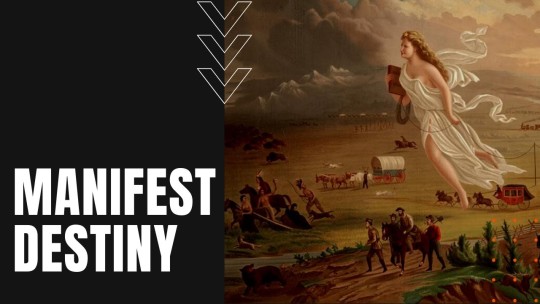
The term 'Sub-Saharan' Africa is a colonial language that was used to belittle African nations south of the Sahara and to separate the other countries from North Africa– Egypt, Morocco, Algeria, Tunisia, Libya, and Sudan due to them being Arab states.




Colored, Negro, Black, Nigger
Every one of these terms come from the mindset of Europeans not Africans. Indigenous African societies do not use the term black as a racial identity outside of influences brought by Western cultures.
Contemporary anthropologists and other scientists, while recognizing the reality of biological variation between different human populations, regard the concept of a unified, distinguishable "Black race" as socially constructed.
Black is a term developed in the Colonial Assembly of Maryland, after a rebellion called Bacon's Rebellion, fought from 1676 to 1677.
The alliance between European indentured servants and Africans (a mix of indentured, enslaved, and Free Negroes) disturbed the colonial upper class. They responded by hardening the racial caste of slavery in an attempt to divide the two races from subsequent united uprisings with the passage of the Virginia Slave Codes of 1705.
White took on the meaning "British, Christian and having rights. Black meaning not having rights.
These divided the two populations, by giving poor Europeans with no power, unprecedented power over all non-Europeans.
The laws were devised to establish a greater level of control over the rising African slave population of Virginia. It also socially segregated white colonists from black enslaved persons, making them disparate groups and hindering their ability to unite. Unity of the commoners was a perceived fear of the Virginia aristocracy, who wished to prevent repeated events such as Bacon's Rebellion, occurring 29 years prior.
By refusing to call you an African, it belittles you, no such thing as black names, black land or black languages. It is like calling a woman big lips or flat butt and refusing to call the woman by her actual name. "Hey colored girl, or black boy".
In social psychology, a stereotype is a generalized belief about a particular category of people.
African populations have the highest levels of genetic variation among all humans.

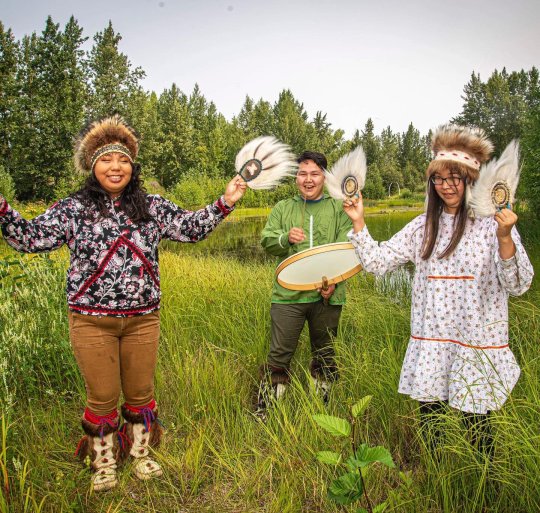
Why You Probably Shouldn't Say 'Eskimo'
People in many parts of the Arctic consider Eskimo a derogatory term because it was widely used by racist, non-native colonizers. Many people also thought it meant eater of raw meat, which connoted barbarism and violence. Although the word's exact etymology is unclear, mid-century anthropologists suggested that the word came from the Latin word excommunicati, meaning the excommunicated ones, because the native people of the Canadian Arctic were not Christian.
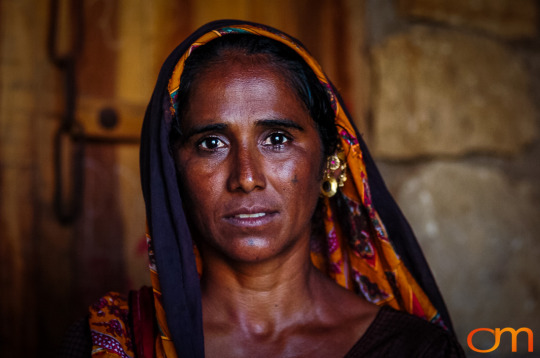
According to the Constitution of India, we are “the people of India that is Bharat”
In English language discourse, the word ‘India’ is used and in Hindi expressions, the word ‘Bharat’ is used. The Anglicised call it ‘India’, and the indigenous call it ‘Bharat’. Our ruling class calls it ‘India’, the others, the janata, call it ‘Bharat’. It has become a trend and fashion to prefer the word ‘India’ over ‘Bharat’. We converse with the country in Hindi and other vernaculars while we govern it in English.

Japanese people usually refer to their country as Nihon or Nippon
The name "Japan" in English is derived from the Portuguese word "Japão," which was used during the 16th century when Portuguese traders and explorers first arrived in Japan. The Portuguese term "Japão" likely evolved from the Malay word "Japang" or "Japang Pulau," which referred to the Japanese archipelago.
The Japanese people themselves refer to their country as "Nihon" (日本) or "Nippon" (日本), and these terms have been used in the Japanese language for centuries.

As European seen themselves as the elites of all races and god's chosen people. They took on the mindset of what I say makes the most sense.
Renaming essentially all populations they came in contact with, using their language as opposed to learning the language of the natives.
And whatever religion or spirituality people had Europeans demonized it and forced converted people to Christianity.
#african#afrakan#kemetic dreams#africans#brownskin#brown skin#afrakans#manifest destiny#colonization#colonialism#europeans#european#slavery#mindset#christianity#religion#spiritual#spirituality#asians#gujarat#gujarati people#india#bharat#nippon#nihon#english#eskimo#yupik#inuit#bacons rebellion
114 notes
·
View notes
Text
What is Ableism?
Here are 10 examples (that I’ve experienced or witnessed, as a physically disabled person) that have nothing to do with using the “Wrong Words,” or being mean:
In countdown style, but really, no particular order:
10) Strangers asking “innocent” questions, such as: “How do you go to the bathroom?” or “Do you sleep in a bed?” as openers to conversation
9) Caregivers, teachers, therapists, etc. controlling, and limiting, access to someone’s Augmented Assistive Communication technology
8) Not being allowed, as a wheelchair user, to sit next to the fire exit, because you’ll block other people’s escape
7) On a period drama on TV: the entire street has been dressed up to look right, with building facades, and lampposts accurate to the period, but no one has taken the time to disguise the wheelchair access curb cuts.
6) The city’s art museum has a grand staircase for its main entrance; If you use a wheelchair, you have to use a small door with a ramp off the back parking lot. The door is kept locked, and you have to use an intercom to call someone to unlock it, and then wait. The intercom speaker is at the height for a standing person.
5) Wait staff at a restaurant asking the normate person at the table with you what you want to eat.
4) If your wheelchair or other assistive tech breaks down, the only business allowed to fix it is the business you purchased it from. If that establishment has gone out of business, or if you have moved to a different city, you’ll have to call up your insurance company, and negotiate something (good luck!)
3) Medicare and Medicaid only paying for assistive tech if you need it for “daily activities” inside your home. “Daily activities” are limited to: Eating (but not cooking), “Toileting” (bathing and using the toilet), and transferring to and from your bed. Holding down a job outside your home, caring for children, participating in your neighborhood events, escaping your home in case of a fire, are not considered “daily activities,” and thus anything you need for those things is not covered.
2) [This happened to an online friend, years ago, who has since erased themselves from online] Emigrating to Canada for a job promotion, selling your home in the U.S., converting all your savings to Canadian dollars, only to be told you’ll never be granted citizenship, because your daughter has Down Syndrome, and will be too big a burden on their health system (The U.S and many European countries have similar policies)
1) [This was reported to me by my aide, whose other client at the time was a boy with a C.P. attending his local public school] A school policy that said that all students with an Individual Education Plan must ride to school on a segregated bus, even if they don’t need the wheelchair lift, and they enter the school through a separate door, and wait for the first bell in a separate room (but they’re following the ADA, right? ‘Cause they’re teaching the kids in the same school!)
#Ableism#what it is#list of 10#Disability Pride Month ♿#No - I can't just escape to Canada if this country gets worse#stop suggesting that
412 notes
·
View notes
Note
kink rating: canadians
I hate them because they keep eating my whole face and body and leaving nothing and also not having strong opinions about where I belong in sex segregated spaces
12 notes
·
View notes
Text
Is your pro-Palestine activism hurting innocent people? Here's how to avoid that. (Plain text version)
I kept getting "needs pt" tags on the original post, so here's the plain text version:
Over the last few days, I’ve had conversations with several Jewish people who told me how hurt and scared they are right now.
To my great regret, some of that pain came from a poorly-thought-out post of mine, which – while not ill-intentioned – WAS hurtful.
And a lot of it came from cruelty they’d experienced at the hands of people who claim to be advocating for Palestine, but are using the very real plight of innocent Palestinians to harm equally innocent Jewish people.
Y’all, we need to do better. (Yes, “we” definitely includes me; this is in no small part a “learn from my fail” post, and also a “making amends” post. Some of these are mistakes I’ve made in the past.)
So if you’re an advocate for Palestine who wants to make sure that your defense of one group of vulnerable people doesn’t harm another, here are some important things to do or keep in mind:
Ask yourself if you’re applying a standard to one group that you aren’t applying to another.
Would you want all white Americans or Canadians to be expelled from America or Canada?
Do you want all Jewish people to be expelled from Israel, as opposed to finding a way to live alongside Palestinian Arabs in peace?
If the answer to those two questions is different, ask yourself WHY.
Do you want to be held responsible for the actions of your nation’s army or government? No? Then don’t hold innocent Jewish people, or Israelis in general (whether Jewish or otherwise), responsible for the actions of the Israeli army and government.
On that subject, be wary of condemning all Israeli people for the actions of the IDF. Large-scale tactical decisions are made by the top brass. Service is compulsory, and very few can reasonably get out of service.
Blaming all Israelis for the military’s actions is like blaming all Vietnam vets for the horrors in Vietnam. They’re not calling the shots. They aren’t Nazis running concentration camps. They are carrying out military operations that SHOULD be criticized.
And do not compare them or ANY JEWISH PERSON to Nazis in general. It is Jewish cultural trauma and not outsiders’ to use against them.
Don’t infuse legitimate criticism with antisemitism.
By all means, spread the word about the crimes committed by the Israeli army and government, and the complicity of their allies. Criticize the people responsible for committing and enabling atrocities.
But if you imply that they’re committing those crimes because they’re Jewish, or because Jewish people have special privileges, then you’re straying into antisemitic territory.
Criticize the crime, not the group. If you believe that collective punishment is wrong, don’t do it yourself.
And do your best to use words that apply directly to the situation, rather than the historical terms for situations with similar features. For example, use “segregation,” “oppression,” or “subjugation,” not “Holocaust” or “Jim Crow.” These other historical events are not the cultural property of Jews OR Palestinians, but also have their own nuances and struggles and historical contexts.
Also, blaming other world events on Jewish people or making Jewish people associated with them (for instance, some people falsely blame Jewish people for the African slave trade) is a key feature of how antisemitism functions.
Please, by all means, be specific and detailed in your critiques. But keep them focused on the current political actors – not other peoples’ or nations’ political or cultural histories and traumas.
Be prepared to accept criticism.
You probably already know that society is infused with a wide array of bigotries, and that people growing up in that environment tend to absorb those beliefs without even realizing it. Antisemitism is no exception.
What that means is, there’s a very real chance that you will screw up, and get called out on it, as I so recently did.
If that happens, please be willing to learn and adapt. If you can educate yourself about the suffering and needs of Palestinians, you can do the same for Jewish people.
Understand that the people you hurt aren’t obligated to baby you. Give them room to be angry.
After I made a post that inadvertently hurt people, some were nice about it, and others weren’t. Some outright insulted my morals and intelligence.
And I had to accept that I’d earned that from them.
I’d hurt them, and they weren’t obligated to be more careful with my feelings than I had been with theirs.
They weren’t obligated to forgive me, trust me, or stop being mad at me right away.
I’ll admit, there were moments when I got defensive. I shouldn’t have. And I encourage you to try not to, if you screw up and hurt people.
I know that’s hard, but it’s important. Getting defensive only tells people you care more about doubling down on your mistake than you do about healing the hurt it caused.
Instead, acknowledge that they have a right to be angry, apologize for the way you hurt them, and try to make amends, while understanding that they don’t owe you trust or forgiveness.
Be aware that some antisemites are using legitimate complaints to “Trojan horse” antisemitism into leftist spaces.
This is a really easy stumbling block to trip over, because most people probably don’t look at every post a creator makes before sharing the one they’re looking at right now.
I recently shared a video that called out some of the Likud and IDF’s atrocities and hypocrisy, and that also noted that many Jewish people are wonderful members of their communities.
I was later informed that, while that video in particular seemed reasonable, the creator behind it is frequently antisemitic.
I deleted the post, and blocked the creator. I encourage you to do the same if it’s brought to your attention that you’ve been ‘Trojan horse’d.
EDIT: Important note about antisemitism in leftist spaces:
While it's true that some blatant antisemites are using seemingly reasonable posts to get their foot in the door of leftist spaces, it's also true that a lot of antisemitism already exists inside those spaces.
This antisemitism is often dressed up in progressive-sounding language, but nonetheless singles Jewish people and places out in ways that aren't applied equally to other groups, or that label Jewish people in ways that portray them as acceptable targets.
If you want to see some specific examples, so you can have a better idea of what to keep an eye out for, I suggest reading this excellent reblog of the original post.
Fact-check your doubts about antisemitism.
Depending on which parts of the internet you look at, you’ve probably seen people accused of antisemitism because they complained about the Likud and/or IDF’s actions. So you might be primed to be wary, or feel unsure of how to tell what counts as real antisemitism.
But that doesn’t mean antisemitism isn’t a very real, widespread, and harmful problem. And it doesn’t mean many or even most Jewish people are lying to you or being overly sensitive.
So if someone says something is antisemitic, and you aren’t sure, I encourage you to:
A. Look up the action or thing in question, including its history. Is there an antisemitic history or connotation you aren’t aware of? For best results, include “antisemitic” in your search query, in quotes.
B. Understand that some things, while not inherently antisemitic, have been used by antisemites often enough that Jewish people are understandably wary of them. Schrodinger’s antisemitism, if you will.
C. Ask Jewish people WHO HAVE OFFERED TO HELP EDUCATE YOU. Emphasis on WHO HAVE OFFERED. Random Jewish people aren’t obligated to give you their time and emotional energy, or to educate you – especially on subjects that are scary or painful for them.
@edenfenixblogs has kindly offered her inbox to those who are genuinely trying to learn and do better, and I’ve found her to be very kind, patient, reasonable, and fair-minded.
Understand that this is URGENTLY NEEDED.
In one of my conversations with a Jewish person who’d called me out, they said this was the most productive conversation they’d had with a person with a Palestinian flag in their profile.
THIS IS NOT OKAY.
I didn’t do anything special. All I did was listen, apologize for my mistakes, and learn.
Yes, it feels good to be acknowledged. But I feel like I’ve been praised for peeing IN the toilet, instead of beside it.
Apologizing, learning, and making amends after you hurt people shouldn’t be “the most reasonable thing I’ve heard from a person with a Palestinian flag pfp.”
It should be BASIC DECENCY.
And the fact that it’s apparently so uncommon should tell you how much unnecessary stress and fear Jewish people have been living with because of people who consider themselves defenders of human rights.
By all means, be angry at the Likud, the IDF, and the politicians, reporters, and specific media outlets who choose to enable and cover up for them.
But direct that anger toward the people who deserve it and are in a position to do something about it, not random people who simply happen to be Jewish, or who don’t want millions of people to be turned into refugees when less violent methods of achieving freedom and rights for Palestinians are available.
Stop peeing beside the toilet, people.
#I/P#I/P conflict#I/P war#Israel#Palestine#Gaza#free Palestine#Israel Palestine conflict#Israel Palestine war#Jewish goyim solidarity#choose peace
179 notes
·
View notes
Text
The fandom contribution navelgazing under the cut 🫠 and it's hella long.
Ice skating was terribleeeeee today but my friend was back after being ill and she made me text our other friend bc I was fretting about her and I got some very good very necessary endorphins from skating and from being harassed by our tiny French Canadian coach (this class is turning me into a Canadian Anti fr....how does your national sport involve skating but you are all so bad at teaching adult learn to skate classes...god.) I'm going skating on my lunch break tomorrow and I'm going to try to make a habit of going regularly during my lunches!!
Anyway the endorphins were enough to carry me through inexplicable 8:30pm San Jose traffic and it gave me enough clarity while watching some truly atrocious merging in front of me to think abt why I do fandom and what I use fandom for and what I want out of fandom, particularly as my life and priorities are shifting. This year was a hot mess and I made a lot of mistakes, but as I come out of the worst of it with a clearer head than I've had in years when it comes to what I value in life, it is starting to make me think more deeply about how I spend my free time (well how I spend all of my time, really, but that's a different post) and what I value doing and creating in fandom when my time available to do fandom is increasingly limited.
Ella said something absolutely harrowing but also very beautiful to me today, that we've known each other for almost twenty years. Twenty years!! Next year, we'll have officially been two dumb teenagers on livejournal who grew up together and now are growing old together for twenty years. That's over half my life! And she's not the only one, Erin's been in my life almost as long, and Jane and Nat too! Becs just a few short years behind them, and Lea and Maddy and Lorna! That's a lot of years to know people you met on the internet in fandom and have only met once or twice or never at all but still have remained present in each other's lives in some way or another for two decades. Incredible to realize I've been in love with Ella since I was 15. Incredible to realize I've been obsessed with Becs since I was 19. Incredible to realize Erin and I have been hollering at zoo animals together since we were teenagers!!
And it's so funny because thinking back, so much of those friendships were not even because we met randomly or were sliding into each other's DMs (there were no DMs), most of that was through communities other people built that we were part of. I wasn't part of the mod team that ran the challenge where Ella and I met Becs for the first time. I wasn't part of the mod team that created the insane Killers (band, the band) meme community that Erin and I met in and I certainly had no hand in creating the communal fandom nightmare that sprung up around The Libertines, where many of my oldest fandom friendship were born. A lot of these relationships were built on other people's hard work in creating spaces where other fans could just exist together, could write together, make jokes together, enjoy the act of creation together.
It's so interesting to me because I've found that while fandom as a whole is increasingly segregated and isolated in ways that absolutely suck, there's still seems to be a genuine desire for communal creation? There's a genuine desire to create things together, in whatever ways that looks like to each person. I feel like, the more of these challenges I run, the more I see that there is a genuine desire to BE together in fandom, to share and enjoy and love the act of creation together. And I don't know how much of that has to with the commodification and discordification of fandom and the creators who have been left behind or who have had to deal with that, but it's interesting to see that people do still want, if not a broader fandom community, at least a community in which to create things.
Anyway, thinking about that while contemplating how I want to move forward with @timebegins-onopeningday this week, and what's been on the back of my mind as my life rights itself - whether I want to do @fromthebottomofthepugetsound and @sharkuda-strong again or if I want to let those two go, what rules I want to adjust for @theresonly1u next summer, the check-in I need to do @4thlinegrindfest, all the stuff I gotta talk to kb about for untitled old man hockey fest. And it's like - and this is why I cut this entire post and why I'm making in unrebloggable - am I running these challenges because I want more fic about the people I enjoy, am I running these challenges because no one else will, or do I want to reframe (for myself, going forward) that if my fandom time is valuable and limited, maybe it's more important to think about and focus on my desire to encourage the act of creation and to help create community more than running challenges are strictly about the product of that creating.
Like, if my priorities in all aspects of my life are shifting and the time I have available to spend time in fandom is increasingly limited (for both good and bad), do I want to spend so much of my time then running challenges with the goal of endless production and content, or do I want to spend my time running challenges with the goal of fostering creating and creation, in whatever form that takes?
You'll catch me in a hell I don't believe in before I mod a discord server for any fandom. But it does make me think, like, okay, how can I manipulate the spaces these challenges take place in - how do I manipulate the limitations of Tumblr as a microblogging site, how do I manipulate AO3 as an archive, to foster and grow spaces that are as much about the act of creating as they are about what you create. I don't have a firm answers yet for myself, but it's slowly starting to take shape.
I think a lot about what Lesa commented under a post of me getting whipped up about not completing anything for @michigan-lakehouse - that there's no act of writing that's lost or forgotten, the stuff you abandon is just sourdough starter. I think that's the heart of what I want out of these challenges, thinking about it now. I'd like everyone to walk away from these challenges feeling, if nothing else, at least like they have sourdough starter for a work - maybe they didn't complete their work, maybe they hate what they made, but they have the beginning of something, they have something they can use for later, even if it's just 100 words of story or half an outline of an idea they use later. Even more ideally, someone walks away feeling more confident in their abilities as a creator or they walk away feeling braver about being in fandom or they walk away just feeling good about who they are and what they bring to the fandom table, regardless of whether or not they had a completed work. In a perfect world, they have all that AND they found a new person to DM about their fave, or they got invited to a new Discord server of like-minded people, or even just found someone new to follow. Maybe that's too lofty for a goal for an Archive of Our Own-hosted project that is mostly advertised on Tumblr, I don't know. And again, I'm still thinking about what that would even look like and how I would make that happen in a way that is both accessible to everyone and doable for me as one person who is very busy. But it's on my mind.
Because I mean, what is the point of doing anything for fandom, if not to create community?
25 notes
·
View notes
Text
since the end of world war two - which was a reset as the world was devastated by war and shocked about the holocaust and other atrocities committed by nazi germany and the axis powers - the usa (in no particular order):
had segregation until only around 50 years ago despite taking the moral high ground for beating the racist nazis
granted immunity to nazis and actively recruited nazi scientists
declared the war on communism costing hundreds of thousands of lives and ravaging vietnam as well as funding islamistic terrorism as a countermeasure
then declaring the war on terrorism after the war on communism backfired with 9/11 costing another thousands if not millions of lives with devastating consequences for countries like afghanistan
destabilised and hindered democracy in several countries and regions that still deal with the consequences today such as venezuela
declared the war on drugs but also had a cia funded crack epidemic
have built a wall on the mexican but not the canadian border
spent billions over billions for military and other operations to control other countries and have the most power on a global scale while many of the population cant even afford healthcare and live in very precarious situations or even without housing due to the unwillingness to regulate corporations and grant better workers and tenants rights
refuse to regulate big corporations and let technology companies grow unchecked which is kind of ruining the internet
claim to hate religious fundamentalism when its about islam while evangelicals are one of the most powerful political groups and fundamentalists are allowed to homeschool and isolate their kids
abused the jews wish for their own country to install the state of israel for control in the middle east, funding displacement and systematic cleansing of palestinians with the help of the british
still systematically discriminate against the native population and leave them in a vulnerable position leading to a huge issue with kidnapping, trafficking and unsolved murders of native girls and women
has almost 5 % of its population incarcerated who then are not allowed to vote with 30 % of the female prison population being prostitutes
have a sham democracy run by billionaires and reagan is mainly responsible for undoing social progress by enforcing neoliberalism and lying about trickle down effects
have no public broadcast and all news sources are privatised
still have the death penalty and abortion bans in some states
probably a shit ton more im forgetting now
yet usamericans have the gull to get on a high horse and point fingers at other countries because what? a european was mean online? lmao. and what gets me the most is that they often couldnt even name the president or point out said countries on a map.
people joke about the usa because they have made themselves out to be land of the free, the best country in the world, the worlds cop, the poster child democracy, while miserably failing their own people, immigrants following the promise set by the usa for a better life, and every country that was unlucky enough to be invaded and destabilised by the us military and the cia. on top the usa have a hegemonic grip on the majority of the globe and export culture wars and propaganda through hollywood movies and shows especially to other western countries. so give me a break
#im not saying usamericans can never criticise other countries especially western ones#its the attitude that gets me#and sometimes maybe its better to focus on domestic issues because there are more than enough#i know my usa critical posts are not very popular but i dont care#i cant always be posting peer approved takes#rambling
18 notes
·
View notes
Text
Its so weird when oppressors ,& people who belong to a privileged group will coin a term for themselves & others to "other" people for the purpose of segregation or marginalization, but then later will get mad when you use those terms for them, even though they're the group who came up with the terms in the first place. Like White people & Europeans were the ones who came up with the concept of Whiteness & race & the term "White" but now White ppl get mad if you call them White. & there's also White Americans & Canadians who are fine with calling nonWhite Canadians & Americans as "(x ethnicity) Canadian/American" (like African Americans, Native Americans, Chinese Canadians, etc) but get mad if you call them Settler or European Americans/Canadians. I do believe it was a cis person who used Latin terms to describe cis & trans when describing gender but now there's transphobic cis people who get mad if you call them cis. T*rfs were literally the ones who coined the acronym t/erf to describe themselves & now they also insist its a slur
I know it has to do with the fact that privileged people (who either haven't comes to terms with their privilege & role in oppression or enjoy it) see themselves as the default & "normal" & that everyone else is supposed to be the labeled ones, but its still stupid
56 notes
·
View notes
Note
Alright, why wouldn't Hekarro wanna use Carja glyphs as the Tenakth writing system? The Phincian alphabet is the basis for most of the writing systems in Western Europe - if you got a writing system that works, why not adapt it?
I'M FINALLY ANSWERING THIS ASK TWO MONTHS LATER 😂
For anyone who's curious, the context for this was a post I made a while back in response to an ask regarding whether the Quen might be able to read Chinese, since the Focuses they would have found in the Great Delta would plausibly have been formatted in Chinese. In the tags on the post, I remarked that I had a rant about Hekarro wanting to borrow the Carja writing system. Everbright has asked me to elaborate, and now I'll finally be writing the essay that's been sitting at the back of my mind for like a year LOL.
My thesis here is as follows: it's not the idea of the Tenakth borrowing the Carja writing system that bothers me, necessarily. I take umbrage with the fact that Hekarro seems to think the Tenakth are inferior to the Carja because they aren't a literate society.
This post is going to get long, so I will put the rest behind a cut to give anyone a break who wants to scroll on past LOL. Also, please note: trigger/content warning for mentions of residential schools in Canada.
First things first: I'm writing this as a non-indigenous Canadian, so I may be writing with biases of my own that I will apologize for in advance. If any members of the cultural groups I'm going to mention should read this and take issue with anything I've said, please do feel free to write me a message here on Tumblr!
Okay, let me set the context here. When Aloy first meets Hekarro, a piece of their conversation is as follows, with the transcript to follow:
Aloy: I’m sorry about Fashav. He seemed like a good man.
Hekarro: More than a man. A bridge between Tenakth and Carja.
No outlander ever earned our respect as he did. I had hoped he would be my voice in Meridian. That peace with the Carja might become something more.
A: An alliance?
H: An exchange. The Carja have much we lack. Our deeds are written in ink upon our bodies. Our memories die with our flesh. But the Carja never forget. Their deeds are written in book and scroll.
A: You wanted to learn from them?
H: As I learned from Fashav. He will be missed.
This conversational exchange has always bothered me, because inherent in this exchange is the idea that Hekarro views the Tenakth as being lacking compared to the Carja -- that the Carja are superior to the Tenakth because of the fact that they're able to read and write, rather than tattooing their history on their skin. This statement reflects a bias that feels very 'colonizer' to me in an icky way. Being a literate society does not inherently make you superior to a society that doesn't use writing, but that exact idea has been used tons of times in history to argue that the indigenous cultures of a place are less advanced/less intelligent/less valuable than the people who are coming in and trying to force their ideals, including literacy, on the indigenous group(s). In the context of Canada, for instance, Kirmayer et al. (2009) wrote that "aboriginal peoples were viewed as incapable of understanding and participating in democratic government, thereby motivating efforts to 'civilize' and assimilate them into mainstream Canadian society," with that mainstreaming process including residential schools: institutions that took indigenous children from their families and communities and placed them into segregated spaces where they were forbidden from speaking their native languages, practicing their traditional customs, and from contacting their families at all.
This is especially irksome to me because the Tenakth tradition of tattooing (or "ink", as they call it in-game), is based on tattooing traditions IRL with an extremely rich historical and cultural background. The most obvious similarity is to Polynesian tattoo (or "tatau") practices, which I'll focus on here, but similar methods with equally rich histories exist in the Philippines and in Japan.
One of the most striking things about Polynesian tatau practices is that it's not just the act of striking ink into the skin that matters; it's the meaning behind the act of getting a tattoo, and the embracing of community and identity inherent in the practice. As one Samoan tatau artist said, "it's important to know the meaning behind the symbols of our traditional tatau so you have a deeper understanding of the significance of what you're wearing. Each 'maman' or each pattern has its own meaning and story behind it." Polynesian artists also highlight the fact that these traditions are passed through the generations for thousands of years, and that those who wear tatau are "wearing the maps of our ancestors." As another artist said, Polynesian tatau is "a reconnection to all my ancestors and everybody behind me, because I'm not only speaking for me, but a whole generation of kids that are like me, that are getting Polynesian tattoos to reconnect."
Tenakth tattoos, like Polynesian tattoos, are a way of recording history and lore -- not only one's own stories and victories, but those of the people that are important to a warrior, as evidenced by Kotallo stating that he plans to ink Varl's deeds on his own skin in tribute. I also personally think that it's culturally fitting for the Tenakth to record important history on their bodies, since the Tenakth place such emphasis on physical strength. It makes logical sense that they would record their proudest deeds on the thing that they view with such pride, i.e. their physical bodies. Hekarro's statement that the Tenakth are "lacking" because they don't record their history "in book and scroll" feels like a devaluation of the Tenakth's culturally-specific method of recording history, much in the way that colonizing societies have devalued the oral traditions of North American indigenous groups. Oral traditions are an extremely important aspect of many indigenous cultures; a group that provides indigenous culture training has stated that "certain stories are never written down, which preserves the tradition of sharing knowledge, culture, and history orally. These stories are the fabric of the community’s history, knowledge and culture, and some are thousands of years old. In some cultures, if a story is written down it is degraded." By ignoring this rich tradition and imposing written records of those stories, they would be degraded and rendered less than what they're meant to be.
Now, some of you might be asking whether it was an oversight/mistake on the part of the Guerrilla Game writers that Hekarro made this accidentally-denigrating comment toward his own tribe. Honestly, I do think it was an oversight, and one that I find disturbing, because it seems to stem from a blind spot that GG isn't aware of. This isn't the only time that content coming from the Horizon world seems to follow this 'colonizer'-like idea of certain societies being more advanced and superior to others. In the concept art book for Horizon Zero Dawn, for instance, there's a description of the Carja as follows (p. 47), transcript below:

[Transcript: Among all the tribes of Horizon Zero Dawn, the Carja Sundom boasts the most advanced culture. Using the advantages of their geographical position, the Carja have developed agriculture and trade while other tribes still rely on hunting and gathering. The Carja's impregnable capital, Meridian, provides security for a civilized population. Artisans and traders flourish here, serving sophisticated, well-to-do citizens. Carja civilization towers over the other tribes, just as the Sun of their religion rises above the horizon of their mesa valley.]
Even worse, there’s this passage from p. 48, where the non-Carja tribes are called “primitive”.Transcript below:

[Transcript: Through ages of perfecting the techniques of machine plate-working, the Carja have developed the most sophisticated way: to apply the materials of mechanical fauna. While more primitive tribes would roughly affix more or less useful machine parts on their garments, Meridian artisans interweave fine fitted machine elements into comfortable and functional pieces.]
Quotes like this make me worry that there are people at GG who aren't recognizing their own bias inherent in the description of the Carja compared to other tribes. There seems to be a lack of awareness here about the dangerous underpinnings of seeing one culture as more "advanced" than another just because it is more dominant or mainstream. As Shaw (2001) states, "in not according recognition, let alone respect, to the distinctive linguistic and cultural identities that have shaped First Nations peoples, the majority culture continues to exert a significantly negative influence on identity, on self-esteem, on pride in one's cultural heritage, and on one's sense of self and of place in the broader society."
To summarize to some degree: I don't have a problem per se with the Tenakth borrowing the Carja writing system. My qualms come from the idea that the idea of the Carja being superior will come along with that borrowing, thereby devaluing the rich tradition of Tenakth tattoos. As Hale (1992) states, "while it is good and commendable to record and document fading traditions, and in some cases this is absolutely necessary to avert total loss of cultural wealth, the greater goal must be that of safeguarding diversity in the world of people. For that is the circumstance in which diverse and interesting intellectual traditions can grow."
TLDR: Tenakth tattoos are just as valid and important a method of recording lore and history as Carja writing, and the Tenakth are not inferior or primitive for not having a tradition of reading/writing. I think Hekarro's comment about the Tenakth being "lacking" is reflective of a blind spot at GG that I hope will be addressed in future games.
If you came this far, THANK YOU FOR READING and accept this cookie as thanks for staying with me! 🍪😂 A friendly final note: do be warned that any replies or comments to the effect of "but literate societies ARE inherently better than illiterate ones" will be removed and the writers of such comments may be blocked, depending on their intentions as I read them. 🥰
-- love from your friendly neighbourhood Pika xoxo
#i'm sorry my references are quite old#i dug up my notes and references from a class I took almost 10 years ago#horizon forbidden west#hfw#hekarro#chief hekarro#tenakth#carja#tw: residential schools#i'm sorry so many of my references are old#i dug them out my notes from a class I took almost 10 years ago#I KNEW THAT HOARDING MY STUFF WOULD COME IN HANDY SOMEDAY 😂😂😂#horizon critical#hfw critical
43 notes
·
View notes
Text
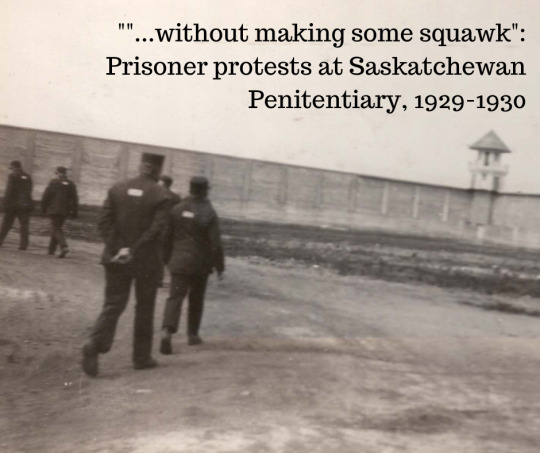
On November 14, 1929, a serious prison strike nearly broke out at the Saskatchewan Penitentiary in Prince Albert. Only by the narrowest of chances was the plot discovered by staff and the strike averted. The strike leaders were two convicts, Ashton and Jones, who referred to themselves in furtive notes as “sweethearts” and “lovers” - they dreamed of escaping to be together. Two hatchet-men from Ottawa were sent to clean up, senior officers of the penitentiary were dismissed, and the whole affair hushed up, save for a few stories in the newspapers. This is part of my rambling, fully informal, draft attempts to understand the origins and course and impact of the 1930s ‘convict revolt’ in Canada, and other issues related to criminality and incarceration Canadian history. (More here.)
Saskatchewan Penitentiary was, at the time, the newest federal penitentiary in Canada. Opened in 1911, to replace the territorial jail at Regina, parts of it were still under construction in 1929. UBC penologist C. W. Topping praised Sask. Pen as “the finest in the Dominion,” with supposedly ‘modern’ features in the cell-block and workshops, including an up-to-date brick factory that produced for federal buildings in the Prairies. Discipline and the organization of staff and inmates was functionally the same as everywhere else in Canada, however: forced labour, the silence system, limited privileges and entertainments, a semi-military staff force, and an isolated location far from major population centres.
The majority of inmates were sentenced from Saskatchewan and Alberta, but throughout the 1920s, 1930s and 1940s, Saskatchewan Penitentiary was used as an overflow facility from overcrowded Eastern prisons. In April 1929, dozens of mostly malcontent prisoners were transferred from Kingston Penitentiary. A “row” was expected with these men, but they were not closely watched or segregated from the main population. In November 1929, there were 430 prisoners at Saskatchewan Penitentiary – almost 60 were from Kingston.
The staff at Saskatchewan Penitentiary were warned on the morning of November 14, 1929, by a ‘stool pigeon’ that all work crews (called gangs) would refuse to leave their places of work “until all their demands were met with.” The stool pigeon had no idea who the ringleaders were or the demands, but the Deputy Warden, Robert Wyllie, ordered his officers to keep “a sharp lookout” for suspicious actions. Over 70 prisoners were working outside the walls in two large groups - building a road and laying sewage pipe - and they were supposed to be the epicentre of the strike. Indeed, the whole day of the 14th staff had observed them talking and passing hand gestures. Other warnings came in throughout the day, so Wyllie ordered the penitentiary locked down and the next day interviewed several inmates at random who confessed they had no idea how word about the strike leaked out. For reasons we’ll get into, they were "amazed at being locked in their cells" and surprised by the swift reaction from the Deputy Warden. During the morning of the 15th, one man named Ford was strapped 24 times for attempting to incite a disturbance in his cell block. Noise and shouting echoed throughout the ranges.

Prisoners working on a building foundation at Saskatchewan Penitentiary, c. 1927
In a state of growing panic, Wyllie first phoned Warden W. J. McLeod, on medical leave since September and so sick he could barely answer the phone. Wyllie then telegraphed Ottawa in a vague way, indicating a “serious situation” and asking for someone to come and take charge. Unsure of what was going on, the Superintendent of Penitentiaries, W. St. Pierre Hughes, dispatched five trusted officers from Manitoba Penitentiary, summoned the nearest RCMP detachment, and ordered his personal hatchet-man, Inspector of Penitentiaries E. R. Jackson, to proceed to Prince Albert and take charge. Jackson would be accompanied by R. M. Allan, Structural Engineer, who had worked at Saskatchewan Penitentiary for a decade in the 1910s and "who knew the prison from long experience."
Almost everything in the historical record about this episode comes from Jackson and Allan’s investigation. Their personalities and prerogatives colour completely the available accounts. They were not great record keepers. They were, like many civil servants of the era, bitchy gossips. Both men were known as severe disciplinarians. Jackson, though only appointed as an Inspector in 1924, had become an indispensable figure to Superintendent Hughes. Jackson would be sent to institutions that Hughes viewed as insufficiently following his regulations, or where inmate unrest posed a problem. Jackson was sent to handle a riot at St. Vincent de Paul Penitentiary in December 1925, ordering a brutal round of lashings against accused agitators. He headed the British Columbia Penitentiary for a year and a half when Hughes fired the warden on spurious ground.
It was at B.C. Pen that Jackson met Allan, then the Chief Industrial Officer, and the two would work together closely not just at Prince Albert but also in the construction and opening of Collin’s Bay Penitentiary in Kingston. Jackson also was acting warden at Kingston Penitentiary in summer 1930. One KP lifer testified in 1932 that Jackson was “a mean son of a bitch” who ordered draconian punishments for relatively minor offences. Allan would himself become warden of Kingston Penitentiary in mid-1934, and held that position until 1954.
In short, these were not men sympathetic to prison officers they viewed as incompetent or remotely curious about inmate complaints. Their investigation was about establishing blame and getting things back to ‘normal.’ They concurred with Hughes that "men never rebel where there is a tight grip retained of them by management." There is some truth to this, as sociologist Bert Useem has repeatedly argued in his work on American prison riots: a ruthless but effective and well organized prison staff is likely to stop even the best organized prisoner protest.
In a strictly hierarchical, patrimonial system like an early 20th century penitentiary, where all authority rests with a few men at the top, failures of leadership are often critical. This is a factor often overlooked in popular and academic histories of prisoner resistance and riots (rightly so, perhaps, as we should focus on the actions of the incarcerated, nor their jailers). Of course, strikes and riots in prisons, as elsewhere, never just happen – as Hughes himself noted, this “must have been developing for sometime - [revolts] never occur in a day or two."

This photo shows the chief officers involved in this event. From left to right: Saskatchewan Penitentiary Deputy Warden R. Wyllie and Warden W. J. Macleod, Superintendent of Penitentiaries W. S. Hughes, Accountant G. Dillon, Inspector of Penitentiaries E. R. Jackson.
Jackson quickly fixed blamed on Deputy Warden Wyllie. They were "very much surprised by the lack of initiative" of Wyllie, who seemed to have been cowed by the fifty men working on the outside that had tried to strike. This despite the presence of almost a dozen armed officers nearby! Wyllie had had a nervous breakdown from stress, and had allowed, in Jackson’s eyes, a “lack of efficiency and discipline” to pervade the prison. He was "indecisive" in giving punishments at Warden’s Court, causing “the inmates to gloat over and ridicule the officers…" Inmates charged with fighting, insolence, or swearing at officers were warned or reprimanded, the least severe punishment for such severe infractions of the rules. Several officers felt that “there was no use of reporting the inmates” and so they "closed their eyes to a lot of infractions." Another officer thought that since September 1929 "inmates had became cocky … would laugh in the my face and...tell me to report him when he liked...for it would do no good." This situation was very similar to Kingston Penitentiary before the riot in October 1932, and, indeed, typified the crisis of the 1970s in federal prisons as well.
The November 14-15 disturbance was actually not the first strike episode at Saskatchewan Penitentiary that year. There had been unrest or talk of strikes among the prisoners since early September, with a general atmosphere of defiance and mockery of authorities. Many inmates resisted by going “through the motion of working" but not actually completing tasks. There had been a work refusal in late September, and two other strikes or work refusals in the middle of October. In these cases Wyllie intervened personally, but did not investigate, punish the strikers, or rectify the situation. There are not even reports on file about these events, and the record of reports against inmates for violating rules bears out this feeling that prisoners would “have their own way” and no ‘effective’ action would be taken against their rebellions. That is, effective by the standards of guards, who expected their commands to be obeyed absolutely.
Few demands were discovered – or least Jackson did not think the ones he turned up were worth elaborating on. There seemed to have been general opposition to the Steward's department – the “grub” was satisfactory, but apparently not distributed fairly, according to the inmates. The Steward and Deputy Warden had allowed inmates to place “special instructions” for their meals, and they would shout out their orders like they were at a diner, or exchanged their tickets to swap meals. The queued, single file, food line, with no talking and the same meal for everyone, had disappeared, and restoring this system was Jackson’s first act when he took over. Of course, food in prisoner protests stands in for more than just a meal, while also representing a very basic need that is one of the few things to look forward to during days of monotonous labour.
Much of the unrest centred on certain work crews, whose officers were resented, and communication with family, better work arrangements, socializing, access to newspapers, all are mentioned in passing in the investigation files. The “Kingston boys” were also the loudest supporters or organizers of the strikes, and they apparently resented being exiled to Saskatchewan. At least one inmate, Radke, told other inmates he wanted the strike to force a Royal Commission to investigate the prison. This kind of demand would be repeated again and again in 1932 and 1933 during prison riots across Canada.

Cell block in 1930 at Saskatchewan Penitentiary. The beds in the corridors are due to severe overcrowding.
George Ashton was singled out as one of the organizers of the abortive strike. Serving a term for armed robbery, he was one of the Kingston transfers. On November 15, 1929, he was caught trying to throw a letter away. This letter is addressed to another inmate who he had hoped to escape with. Ashton, "a troublesome, Smart Alec kid,” was sentenced to be shackled for ten days to his cell bars and to spend sixty days in isolation. Typical of Jackson’s more ‘effective’ regime.
Ashton’s note was addressed to his 'Pal', Allen, alias Bertram Allen Jones. Both worked in different work crews labouring outside the walls. Ashton’s letter to Jones identifies him as his sweetheart and lover, and promised that "he'll not get into trouble again because of these screws...I will sincerely try to refrain from letting my emotions run riot....My nature is not one which will allow me to lay down and be trodden upon forever without making some squawk." Ashton indicated he wanted to "make the time elapsing between your release and our reunion as sort as possible." He asked how Jones’ time was going, and ended by expressing his longing and desire to be with Jones:
"OH hawt dawg mamma won't we make up for the time of our separation??? Sweetheart I'll be loving you..." Say what's the answer to that companionate [sic] marriage idea? Thinking of accepting or am I such a damn bothersome person that your going to turn me down?.....there'll be a time when we're happy and gay (in each other arms).”
This was apparently one of many letters the two had exchanged, and contrary to the usual arrangements of wolves and punks in early 20th century prisons, where older men ‘protect’ younger inmates, often to extract sexual favours, this was apparently a consensual and sincere relationship. Not as uncommon as might be expected, of course, but it’s unusual to find such boldly expressed desire and love in this period of the archival record. Of course, Hughes thought this letter confirmed that Ashton was "a low bestial sort." Jones was identified as one of the other ringleaders, and he and Ashton had been seen talking to each other and making hand gestures several times in the months leading up to their strike attempt.
Who these men were and what happened to them after their time in prison I don’t know, yet.
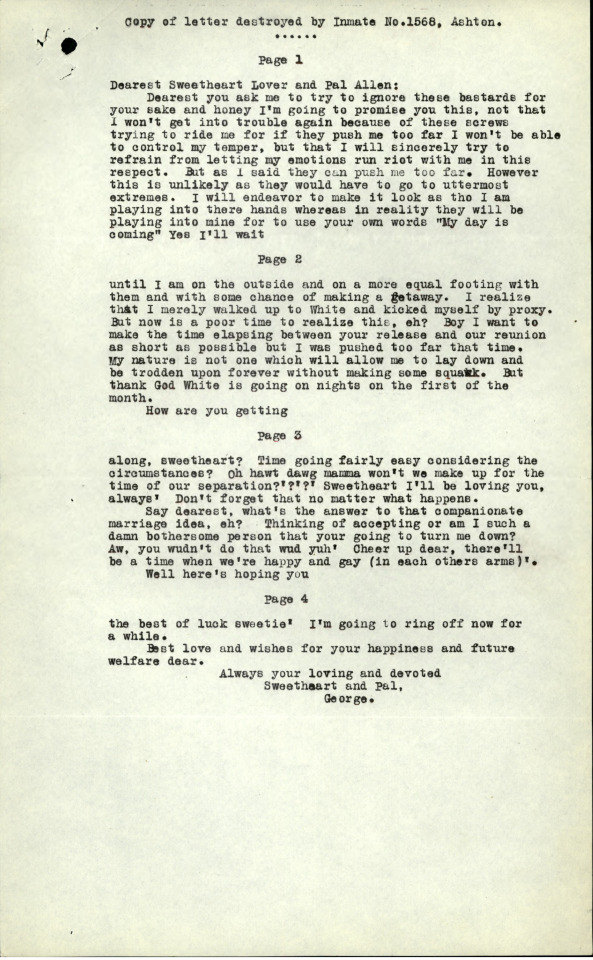
Transcript of Ashton's letter to Jones, the only part of their correspondence that survives today
Inspector Jackson stayed in charge for another two months at Saskatchewan Penitentiary. An attempt to start on insurrection on November 20, 1929, was broken by strapping four of the leaders: “since then the Prison is absolutely quiet." Always full of himself, Jackson included letters of thanks from officers who praised his leadership, including the prison doctor: "We were drifting badly, discipline had practically ceased...now we are back and a Prison once more." He felt satisfied that retiring Wyllie and Warden Macleod had solved the problem, and left Allan in charge starting in mid-December 1929.
While I have no doubt that Deputy Warden Wyllie was responsible for the growth of an inmate strike movement, I don’t believe it is purely a case of his incompetence allowing inmates to organize. Rather, he proved himself to be an open door to prisoners already planning protests, and his inability to act with the severity expected by prisoners and staff alike encouraged further protests. Like a lot of federal civil servants, Wyllie was likely promoted above his abilities, with his loyalty to Hughes, seniority, indispensability to superior officers, and local influence helping to further his career. This was Jackson’s trajectory as well, ironically – once Hughes retired in early 1932, Jackson was on the outs, transferred to clerical duties in Ottawa, and he was dismissed in December 1932 as part of the purge initiated of penitentiary officers by the new Superintendent.
Additionally, it is clear to me that the issues at Saskatchewan Penitentiary extended beyond one officer – and indeed blaming Wyllie absolved a bunch of other officers of corruption and incompetence. Serious issues in the Hospital, Kitchen, School, and Workshops, were identified by Allan when he took over, with trafficking and contraband in cigarette papers, pipes, lighters, smuggled cigarettes, photographs and letters widespread. The Boiler House, where “considerable contraband has been located,” had seven inmate workers, who laboured "without direct supervision...” These men resented the crackdown and refused to work in February 1930 – which revealed to Allan the danger of allowing inmates to have full control of the power plant of the penitentiary.
Allan fired the officer in charge of the boiler house, the hospital overseer, the storekeeper, and reprimanded other officers for failing to confiscate contraband items. Fake keys were found throughout the prison, likely to be used in escapes or smuggling. Inmates had been allowed for years to order magazines direct from the publisher – and did not have them passed through the censor. Another mass strike was attempted in January 1930, apparently to protest Allan cracking down on these deviations from the regulations. As always, it should be recalled that what the officers saw as corruption or smuggling against regulations were all activities that made 'doing time' easier.
Why care about this episode, beyond some of the points I’ve already raised? One aspect of historical study I am most interested in are the precursors to a major event - the struggles, organizing, movements, victories and defeats that (sometimes with hindsight, sometimes without) shape a more influential and decisive event. This is especially difficult when writing the history of prisoner resistance, which often appears a discontinuous history, full of gaps and seemingly sudden flare-ups. The 1930s were a decade of prison riots, strikes, escapes and protests in federal and provincial prisons, but obviously these did not arise from nothing. The 1929 strike attempt at Saskatchewan Penitentiary is a transitional event – similar to earlier strikes and protests going back to the late 19th century, but occurring at the very start of the Great Depression, a premonition of things to come.
#prince albert penitentiary#prince albert#prison strike#prison riot#convict revolt#prisoner organzing#prison administration#prison management#causes of prison riots#my writing#dominion penitentiaries#saskatchewan history#queer history#history of homosexuality in canada#great depression in canada#crime and punishment in canada#history of crime and punishment in canada
30 notes
·
View notes